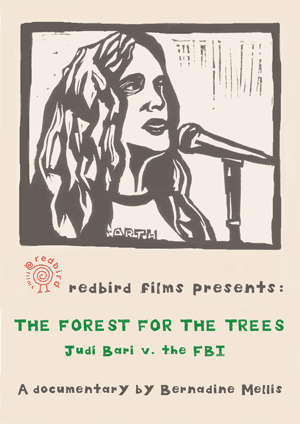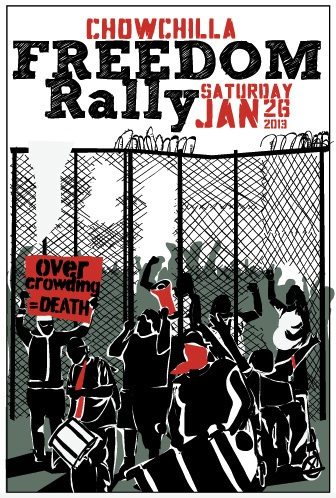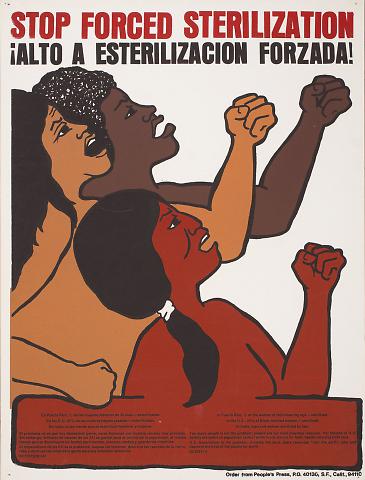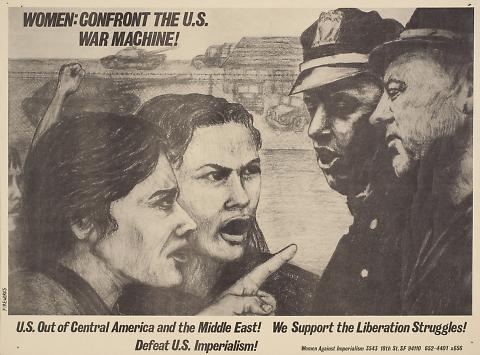Gender and Sexuality
This collection features materials from a number of sources focusing on struggles revolving around gender and sexuality. These struggles are not separate from larger struggles for liberation but specifically incorporate unique voices and perspectives.
Subcollections
-
Connexions
Connexions is the collective product of feminists of diverse nationalities and political perspectives committed to contributing to an international women\'s movement. -
Feminist and Lesbian Politics: Monographs-Periodicals-Articles
This collection contains materials focusing on radical feminist and lesbian politics. While diverse in medium and subject matter, this collection contextualizes women’s liberation highlighting issues of class, race, sexuality and imperialism. -
Materials shot and collected in the making of The Forest for the Trees
Raw materials from the documentary "The Forest for the Trees" which details the amazing story of the fight to clear Earth First! activist Judi Bari's name after her car was bombed and she was arrested as a terrorist. -
Out of Control: Lesbian Committee to Support Women Prisoners
Out of Control (OOC) was a self-supporting committee formed in 1987 to organize resistance to the Lexington Control Unit for women. -
Prisons - Women
This collection contains materials relating to the specific conditions, challenges and struggles facing women in prison. Topics are varied but materials include conference papers, informational materials, legal perspectives and audio recordings. -
Programs produced by Judy Gerber and Laurie Simms
This collection contains grassroots radio programming produced by Judy Gerber and Laurie Simms. This programming primarily occurred during the 1980s and 1990s. -
Sterilization
This collection contains materials focusing on the sterilization of women and efforts to resist this practice. -
Violence Against Women
This collection contains materials focusing on violence against women. Specific topics covered include women who fight back against their abusers, rape, pornography, sexism and self-defense. -
Women Against Imperialism
Women Against Imperialism was a grassroots, feminist, anti-imperialist solidarity organization formed in San Francisco in 1981. Women Against Imperialism’s work primarily consisted of direct action organizing and political education activities.
Documents
7 Documents Found
Call Number: JG/ 077AFormat: Cass AProducers: Judy GerberProgram: A Defiant HeartCollection: Programs produced by Judy Gerber and Laurie Simms
Part two of a speech by Victor Hugo Tenoco, former Vice Foreign Minister of the Sandinista Government in Nicaragua, delivered at Georgia State University in 1991. Tenoco argues that Nicaragua today faces two major problems: democracy and reconciliation and economic recovery. The FSLN needs to serve as constructive opposition to the ruling government. He argues that democracy and reconciliation have made great progress in Nicaragua with the disbanding of the Contras but that the economic problems of the country still loom large for the future. The FSLN is in a difficult position of balancing national interests in economic reconstruction and protecting the concrete interests of the poor. He sees aide as unavoidable. The question remains whether U.S. aide will simply service the national debt or go to rebuild the Nicaraguan economy.
Date: 1/6/1995Call Number: JG/ 087AFormat: Cass AProducers: Judy GerberProgram: A Defiant HeartCollection: Programs produced by Judy Gerber and Laurie Simms
This is a recording on the political realignments in El Salvador on the Third Anniversary of the ceasefire. Reading of Committee in Solidarity with the People of El Salvador's 'El Salvador Watch' article: "FMLN Redefining and Renewing the Salvadoran Left.' The article describes the December 17, 1994 FMLN party convention in which the group split. While centrist groups departed from the FMLN, the party is in whole solid and reorganizing into a renewed leftist political option. There have also been realignment across the Salvadoran political spectrum including on the right. ARENA has broken off from the Liberal Democratic Party because it supposedly resents the peace. While half the population abstained in the last election, the political reality is much more democratic in El Salvador.
Date: 2/17/1995Call Number: JG/ 093AFormat: Cass AProducers: Judy GerberProgram: A Defiant HeartCollection: Programs produced by Judy Gerber and Laurie Simms
Interview with Martha Reese, anthropology professor at Agnes Scott College in Georgia on the economic and political situation in Mexico. Reese outlines the course of the economic crisis in Mexico, noting growing divisions within the PRI. She harshly critiques the Mexican voting system and comments on popular Mexican perceptions of said system. She notes massive protests in Mexico City supporting the EZLN and protesting international and U.S. finance organizations and the CIA. She doubts that the PRI will take any steps towards fostering democracy.
Date: 1/1/1991Call Number: JG/ 124AFormat: Cass AProducers: Judy GerberCollection: Programs produced by Judy Gerber and Laurie Simms
An overview of the El Salvadorian National Debate of 1988, organized by the Catholic Church. 72 grassroots and social organizations joined forces to form the Committee for the National Debate, discuss peace and produce a consensus document with a socioeconomic platform to be addressed by both sides of the debate. Committee members also discuss obstacles to peace negotiations, such as the presence of armed forces, the corruption of the judicial system and the structural problems created by foreign loans.
Date: 1/2/1992Call Number: JG/ 127AFormat: Cass AProducers: Judy GerberCollection: Programs produced by Judy Gerber and Laurie Simms
A member of the FMLN recounts the 6 major conjunctures of democratic struggle against institutionalized militarism and social injustice. This begins with the mass insurrections in 1932 after the democratically elected government was overthrown by the Minister of War and ending with the organization of the Peace Agreements in 1992.
Date: 11/16/1989Call Number: JG/ 139AFormat: Cass AProducers: Judy GerberCollection: Programs produced by Judy Gerber and Laurie Simms
The founder of the Party of the Democratic Revolution (PDR) in Mexico speaks against US intervention in Central and Latin America. He addresses questions about the role of anti-imperialist actions in the US in support of Mexico, and discusses the creation of new, egalitarian trade relationships between North and South American economies.
Date: 1/1/1976Call Number: Vin 014Format: VinylProducers: Paredon Records, Philippine National Democratic StruggleCollection: Programs produced by Judy Gerber and Laurie Simms
This collection of songs is the product of an underground project of Filipino workers and revolutionaries that joined together in the Philippine National Democratic Struggle. Taking four years to complete, this album sends a united message of resistance against the military regime of dictator Ferdinand Marcos and the American imperialist engine that supported it. Includes extensive liner notes.
7 Documents Found









